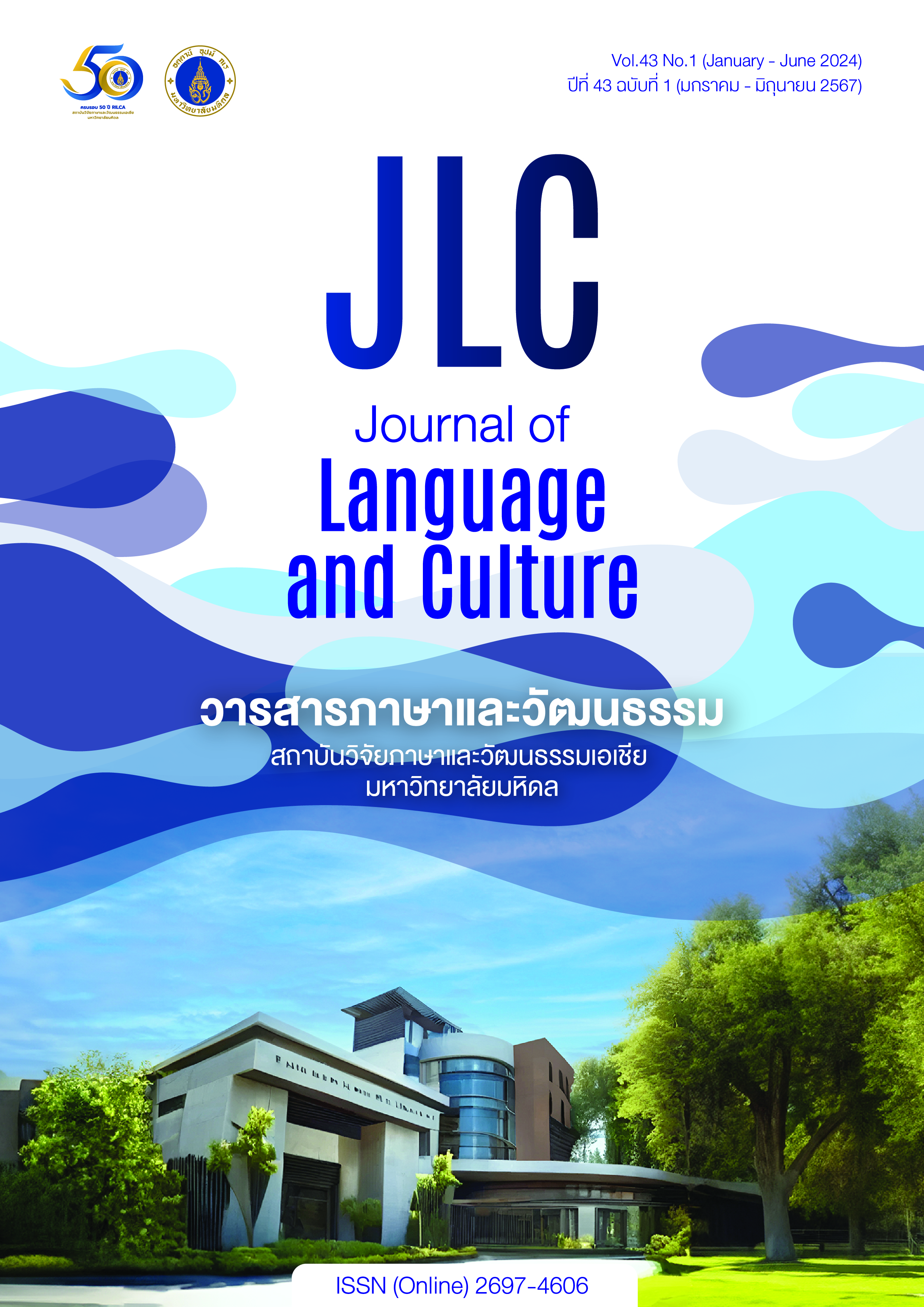Thai soft power: Moving forward in the right direction
Main Article Content
Abstract
This study presents policy guidelines that apply the concept of soft power as a mechanism for a country to enhance its bargaining power at the international level and pursue economic goals. Many countries have leveraged soft power to gain favor within the international community, at both the regional and global levels. Factors that give rise to soft power such as music, film and literature can enable a country to more easily attract and persuade others through a positive national image. Given that soft power is a multifaceted concept, such may be accomplished using cultural appeal, liberal political ideologies and values, favorable foreign policy agendas, and ethical behavior on the world stage. In recognition of the great benefits that regional neighbors such as Japan and South Korea have gained from soft power, the current and previous Thai government administrations have advanced policies aimed at soft power promotion to achieve economic development goals. These policies emphasize cultural resources that have been identified as broadly appealing and are easily accessible to domestic and international consumers. Among the myriad benefits Thailand would stand to gain through the spreading culture around the world include greater internationalization, cultural awareness, and appreciation for democracy and human rights. As this study shows, success in this endeavor is contingent upon private sector cooperation. The role of the government is thus to foster creative ecology and to support public diplomacy through the conveyance of relevant information conductive to promoting a positive national image.
Article Details

This work is licensed under a Creative Commons Attribution 4.0 International License.
The articles featured in the Journal of Language and Culture (JLC) constitute academic works representing the viewpoints of the respective author(s). It is crucial to note that these opinions do not necessarily reflect those of the Editorial Board.
All articles published in JLC are released under the Creative Commons Attribution 4.0 International License (CC BY 4.0). This license grants permission for unrestricted use, distribution, and reproduction in any medium, provided proper credit is given to the original author(s) and the source.
References
Brand Finance. (2024). Global Soft Power Index 2024. https://static.brandirectory.com/reports/brand-finance-soft-power-index-2024-digital.pdf
Creative Economy Agency (Public Organization). (2023). Thailand’s Creative Industries Movement Report 2023. https://article.tcdc.or.th/uploads/media/2024/4/7/media_
Thailand_Creative_Industries_Movement_Report_2023.pdf
Gomichon ,M. (2013). Joseph Nye on Soft Power. https://www.e-ir.info/2013/03/08/joseph-nye-on-soft-power/
Nishamil Hayeesa. (April 14, 2023). Everything is Linked to Soft Power. Princess Maha Chakri Sirindhorn Anthropology Centre (Public Organization) https://www.sac.or.th/
portal/th/article/detail/457
Nye, Jr., Joseph S. & Goldsmith, J. L. (2011). The Future of Power. Bulletin of the American Academy of Arts and Sciences, American Academy of Arts & Sciences. https://www.jstor.org/stable/41149419
Nye, Jr., Joseph S. (1990). Soft power. Foreign Policy, No. 80, Twentieth Anniversary (Autumn, 1990), pp. 153-171. Published by: Washingtonpost. Newsweek Interactive, LLC. https://www.wilsoncenter.org/sites/default/files/media/documents/page/joseph_nye_soft_power_journal.pdf
Nye, Jr., Joseph S. (2004). Soft power: the Means to Success in World Politics, Public Affairs. New York, Public Affairs.
Nye, Jr., Joseph S. (2008). Public Diplomacy and Soft Power Author(s). The Annals of the American Academy of Political and Social Science, Mar, 2008, Vol. 616, Public Diplomacy in a Changing World (Mar., 2008), pp. 94-109 Published by: Sage Publications, Inc. in association with the American Academy of Political and Social Science. https://www.jstor.org/stable/25097996
Nye, Jr., Joseph S. (2009). Get Smart: Combining Hard and Soft Power. Foreign Affairs., July/August 2009, Vol. 88, No. 4 (July/August 2009), pp. 160- 163 Published by: Council on Foreign Relations. https://www.jstor.org/stable/20699631
Nye, Jr., Joseph S. (2020). Countering the Authoritarian Challenge: Public Diplomacy, Soft Power, and Sharp Power. Horizons: Journal of International Relations and Sustainable Development, 15, 94–109. Published by: Center for International Relations and Sustainable Development. https://www.jstor.org/stable/48573639
Nye, Jr., Joseph S. (2020). Soft Power: The Evolution of a Concept. Journal of Political Power Vol. 14, no. 1 (2020): 14.
Nye, Jr., Joseph S. (2021). Soft power: The Evolution of a Concept, Journal of Political Power. https://doi.org/10.1080/2158379X.2021.1879572
Nye, Jr., Joseph S. and Alan Philps. (2013) The World Today. June & July 2013, Vol. 69, No. 3 (June & July 2013), pp. 32- 34 Published by: Royal Institute of International Affairs. https://www.jstor.org/stable/41963167
Nye, Jr., Joseph S., Jisi, W. Rosecrance, R. & Guoliang, G. (2009). Hard Decisions on Soft Power: Opportunities and Difficulties for Chinese Soft Power. Harvard International Review , SUMMER 2009, Vol. 31, No. 2 (SUMMER 2009), pp. 18-22 Published by: Harvard International Review. https://www.jstor.org/stable/42763291
Peera Charoenvattananukul. (2018). Rethinking Soft Power: Problems and Misunderstandings in Applying the Concept in Thailand. Political Science Review, 4(1-2): 237-277.
Peera Charoenvattananukul. (2022). Thailand’s Soft Power Strategy and the Complexities in Creating “Moral Authority” in Foreign Affairs. Vithes Paritas. No. 6 May 2022. https://isc.mfa.go.th/en/content/ยุทธศาสตร์-soft-power-ของไทย?cate=5f204a
c531517cb75
Phitchakan Chuangchai, (March 14, 2023). Soft Power, Culture and Creative Economy Development. Creative Thailand Magazine. https://creativethailand.org/view/article-read?article_id=33445
Policy Statement of the Council of Ministers, Delivered by Prime Minister Srettha Thavisin to the National Assembly Monday, 11 September B.E. 2566 (2023)
Sun, Jing. (2013). Japan and China as Charm Rivals: Soft Power in Regional Diplomacy. University of Michigan Press.


